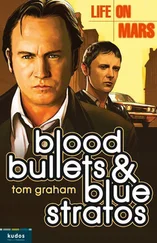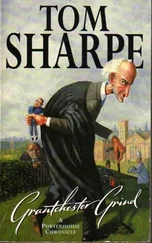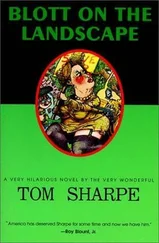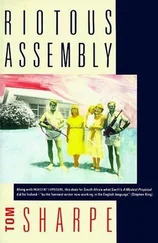In spite of its name there was nothing remotely ancient about Coft Castle. Staunchly Edwardian, its red brick bespoke a lofty disregard for style and a concern for comfort on a grand scale. The General’s Rolls-Royce, RIP 1, gleamed darkly on the gravel outside the front door. Skullion dismounted and pushed his bicycle round to the servants’ entrance.
“Come to see the General,” he told the cook. Presently he was ushered into the drawing-room where Sir Cathcart was lolling in an armchair before a large coal fire.
“Not your usual afternoon, Skullion,” he said as Skullion came in, bowler hat in hand.
“No, sir. Came special,” said Skullion. The General waved him to a kitchen chair the cook brought in on these occasions and Skullion sat down and put his bowler hat on his knees.
“Carry on smoking,” Sir Cathcart told him. Skullion took out his pipe and filled it with black tobacco from a tin. Sir Cathcart watched him with grim affection.
“That’s filthy stuff you smoke, Skullion,” he said as blue smoke drifted towards the chimney. “Must have a constitution like an elephant to smoke it.”
Skullion puffed at his pipe contentedly. It was at moments like this, moments of informal subservience, that he felt happiest. Sitting smoking his pipe on the hard kitchen chair in Sir Cathcart D’Eath’s drawing-room he felt approved. He basked in the General’s genial disdain.
“That’s a nice black eye you’ve got there,” Sir Cathcart said. “You look as if you’ve been in the wars.”
“Yes, sir,” said Skullion. He was quite pleased with that black eye.
“Well, out with it, man, what have you come about?” Sir Cathcart said.
“It’s the new Master. He made a speech at the Feast last night,” Skullion told him.
“A speech? At the Feast?” Sir Cathcart sat up in his chair.
“Yes, sir. I knew you wouldn’t like it.”
“Disgraceful. What did he say?”
“Says he’s going to change the College.”
Sir Cathcart’s eyes bulged in his head. “Change the College? What the devil does he mean by that? The damned place has been changed beyond all recognition already. Can’t go in the place without seeing some long-haired lout looking more like a girl than a man. Swarming with bloody poofters. Change the College? There’s only one change that’s needed and that’s back to the old ways. The old traditions. Cut their hair off and duck them in the fountain. That’s what’s needed. When I think what Porterhouse used to be and see what it’s become, it makes my blood boil. It’s the same with the whole damned country. Letting niggers in and keeping good white men out. Gone soft, that’s what’s happened. Soft in the head and soft in the body.” Sir Cathcart sank back in his chair limp from his denunciation of the times. Skullion smiled inwardly. It was just such bitterness he had come to hear. Sir Cathcart spoke with an authority Skullion could never have but which charged his own intransigence with a new vigour.
“Says he wants Porterhouse to be an open college,” he said, stoking the embers of the General’s fury.
“Open college?” Sir Cathcart responded to the call. “Open? What the devil does he mean by that? It’s open enough already. Half the scum of the world in as it is.”
“I think he means more scholars,” Skullion said.
Sir Cathcart grew a shade more apoplectic.
“Scholars? That’s half the trouble with the world today, scholarship. Too many damned intellectuals about who think they know how things should be done. Academics, bah! Can’t win a war with thinking. Can’t run a factory on thought. It needs guts and sweat and sheer hard work. If I had my way I’d kick every damned scholar out of the College and put in some athletes to run the place properly. Anyone would think Varsity was some sort of school. In my day we didn’t come up to learn anything, we came up to forget all the damned silly things we’d had pumped into us at school. My God, Skullion, I’ll tell you this, a man can learn more between the thighs of a good woman than he ever needs to know. Scholarship’s a waste of time and public money. What’s more, it’s iniquitous.” Exhausted by his outburst, Sir Cathcart stared belligerently into the fire.
“What’s Fairbrother say?” he asked finally.
“The Dean, sir? He doesn’t like it any more than you do, sir,” Skullion said, “but he’s not as young as he used to be, sir.”
“Don’t suppose he is,” Sir Cathcart agreed.
“That’s why I came to tell you, sir,” Skullion continued. “I thought you’d know what to do.”
Sir Cathcart stiffened. “Do? Don’t see what I can do,” he said presently. “I’ll write to the Master, of course, but I’ve no influence in the College these days.”
“But you have outside, sir,” Skullion assured him.
“Well perhaps,” Sir Cathcart assented. “All right I’ll see what I can do. Keep me informed, Skullion.”
“Yes, sir. Thank you, sir.”
“Get Cook to give you some tea before you go,” Sir Cathcart told him and Skullion went out with his chair and took it back to the kitchen. Twenty minutes later he cycled off down the drive, spiritually resuscitated. Sir Cathcart would see there were no more changes. He had influence in high places. There was only one thing that puzzled Skullion as he rode home. Something Sir Cathcart had said about learning more between the thighs of a good woman than… but Sir Cathcart had never married. Skullion wondered how an unmarried man got between the thighs of a good woman.
Zipser’s interview with the Senior Tutor had left him with a sense of embarrassment that had unnerved him completely. His attempt to explain the nature of his compulsion had been fraught with difficulties. The Senior Tutor kept poking his little finger in his ear and wriggling it around and examining the end of it when he took it out while Zipser talked, as if he held some waxy deposit responsible for the flow of obscene information that was reaching his brain. When he finally accepted that his ears were not betraying him and that Zipser was in fact confessing to being attracted by his bedder, he had muttered something to the effect that the Chaplain would expect him for tea that afternoon and that, failing that, a good psychiatrist might help. Zipser had left miserably and had spent the early part of the afternoon in his room trying to concentrate on his thesis without success. The image of Mrs Biggs, a cross between a cherubim in menopause and a booted succubus, kept intruding. Zipser turned for escape to a book of photographs of starving children in Nagaland but in spite of this mental flagellation Mrs Biggs prevailed. He tried Hermitsch on Fall Out & the Andaman Islanders and even Sterilization, Vasectomy and Abortion by Allard, but these holy writs all failed against the pervasive fantasy of the bedder. It was as if his social conscience, his concern for the plight of humanity at large, the universal and collective pity he felt for all mankind, had been breached in some unspeakably personal way by the inveterate triviality and egoism of Mrs Biggs. Zipser, whose life had been filled with a truly impersonal charity – he had spent holidays from school working for SOBB, the Save Our Black Brothers campaign – and whose third worldliness was impeccable, found himself suddenly the victim of a sexual idiosyncrasy which made a mockery of his universalism. In desperation he turned to Syphilis, the Scourge of Colonialism , and stared with horror at the pictures. In the past it had worked like a charm to quell incipient sexual desires while satisfying his craving for evidence of natural justice. The notion of the Conquistadores dying of the disease after raping South American Indians no longer had its old appeal now that Zipser himself was in the grip of a compulsive urge to rape Mrs Biggs. By the time it came for him to go to the Chaplain’s rooms for tea, Zipser had exhausted the resources of his theology. So too, it seemed, had the Chaplain.
Читать дальше












